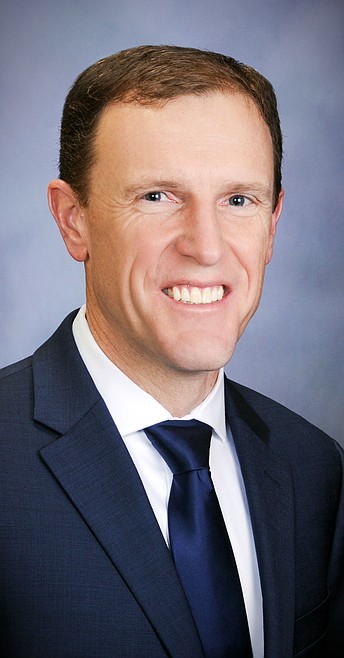Special session addresses COVID-19, impacts
The coronavirus pandemic has resulted in changes to our lives which range from inconveniences to a direct threat to our health and being. We all desire a return to normal living, which is coming, but there are still challenges to face for a time. In an effort to adapt to current conditions, the Idaho Legislature convened this week for a special session to hear two proposed changes to election law for the upcoming November election and to consider civil liability during the coronavirus pandemic.
In a normal year, the Idaho Legislature convenes in January and runs through the end of March. The Idaho Constitution Article IV Section 9 provides for convening the Legislature on extraordinary occasions. Topics of the special session are limited to those called out in the Governor’s proclamation which brings the legislature into extraordinary session. The proclamation acts as a notice of meeting and an agenda, both required for conducting public business. In the proclamation were two topics, election law and civil liability.
Of the two proposals to change election law, one dealt with absentee ballots because of the anticipated greater use this election cycle. The other proposal provided an option for voting centers for in-person voting locations due to the shortage of volunteer poll workers. Both election law proposals were requested by county clerks across the state. The proposal regarding optional voting centers was not passed into law. The absentee ballot changes were passed into law. For the Clerk’s office, mailing timelines changed. Clerks will also be able to open absentee ballots in the week prior to the election, instead of just on election day, for processing, but not for tabulating. Ballots will be kept in a secure location under video surveillance to ensure integrity of the election process. The changes apply only to elections through the end of 2020.
For the purpose of minimizing frivolous lawsuits as a result of the pandemic, a new section of code was created to limit civil liability of individuals, businesses, and educational institutions. The limitation is in effect through July 1st, 2021. If needed beyond that date, the legislature can act during the normal 2021 session.
The most contentious topic in the special session was our emergency status. We often declare emergencies at a local level for fire, flood or other disasters. Due to the pandemic, we have a statewide disaster declaration in place. In that desire to return to a sense of normalcy, a piece of legislation was introduced proposing to end the state of emergency in Idaho. Many felt that ending the state of emergency would move us more quickly back toward our Idaho lives. There are three solid reasons not to end the state of emergency. One, we would give up our federal tax dollars we are receiving from the Federal Emergency Management Agency. Two, we would have to put back in place the Idaho Administrative Rules that are temporarily set aside. Finally, terminating the emergency declaration would not remove the restrictions that are most affecting our lives. Health districts, counties, cities, schools and the Idaho Department of Health and Welfare all have their authority based on existing Idaho laws. In other words, the proposed resolution would not have ended social distancing, closures, or mask mandates.
In addition to the administrative reasons not to eliminate the state of emergency, a constitutional question arose. The topic of eliminating the state emergency was not on the agenda for the special session. It could have been. Legislative working groups of Representatives and Senators worked well over a month debating which topics rose to the urgency level of a special session. Changing the emergency declaration was not proposed by the working groups. Without constitutional authority to change our emergency status, the legislature tabled the proposal, leaving it for future consideration.
Much of our code applying to emergencies has not been tested for decades or more. As times and technology change, so to must our policy and actions. As an alternative to changing the state of emergency, we did lay out a path moving forward to guide our efforts in improving laws surrounding emergencies. The following is a link to the resolution https://legislature.idaho.gov/wp-content/uploads/sessioninfo/2020spcl/legislation/SR101.pdf I certainly expect to see many proposals in the upcoming 2021 legislative session.
I appreciate the opportunity to represent our northern counties. Please never hesitate to contact me with questions or if you’d like to discuss something.

